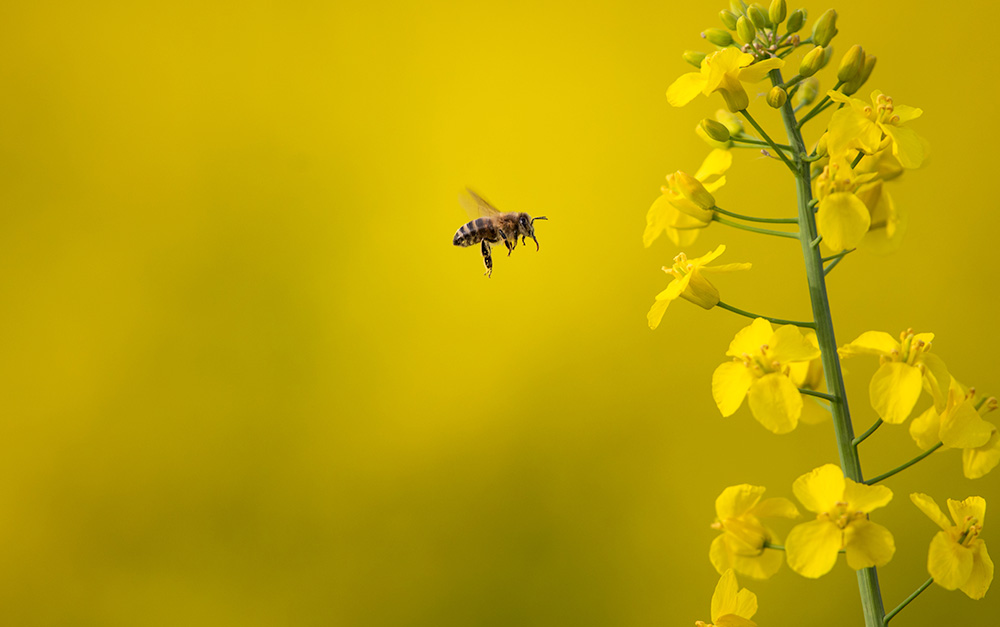22 Jun Pollinators and policy in Minnesota
The 2023 legislative session was a whirlwind for many of our state coalitions, with hard-fought wins, close losses, and unexpected compromises made behind closed doors. It’s clear that we have a lot to celebrate — and a lot more momentum to build. This Pollinator Week, Minnesota Organizing Co-Director Zoe Hollomon, lobbyist Chris Cowen, and partner Erin Rupp of Pollinate Minnesota are shedding light on the legislative wins that target pesticides and pollinators, and impact the farmers, beekeepers, and consumers who rely on pollination for our food supply.
The good
This year, Minnesota experienced a productive legislative session with many advances across the board. Bills that support increased assistance for emerging and BIPOC farmers, paid family and medical leave that includes farmworkers, and a ban on corporate mergers that substantially lessen competition found much-needed support.
Minnesota passed several pollinator bills that have been years in the making. Among them was a precedent-setting bill to better regulate the disposal of neonic-treated seeds. This bill was crafted in 2021 after an
ethanol plant in Mead, Nebraska, used discarded pesticide-coated seeds. The result was contaminated soil and water, as well as harm to the health of the whole community. Though Nebraska swiftly banned the use of pesticide-treated seed in ethanol production, Minnesota legislators introduced a more
comprehensive bill to regulate treated seed disposal and use. Passing this bill is a huge accomplishment and one that sets a high standard for other communities, especially in ethanol-producing states.
Lobbyist Chris Cowen provides some background:
In 2021, the Minnesota Department of Agriculture testified in the House Ag Committee that there was nothing in law that would prevent an ethanol plant from using treated seeds as feedstock to make ethanol. It was incredible that the Senate did not agree with the House and pass the bill then. The 2022 election provided new leadership in the Senate which joined the House to pass this important legislation into law to prevent any disasters like that in Mead from happening in Minnesota.
Another precedent-setting win is the passage of
HF 1130, a bill that restores some elements of local control over pollinator-lethal pesticides. However, this win has its limitations. It is not comprehensive, only applies to Minnesota’s four largest cities, and is not applicable to pesticide sales. Still, the bill marks an important moment where, for the first time in history, a U.S. state has restored local control over pesticides after being preempted (losing the right to make those decisions at the local level). Eleven states do still have local control, but no other state has ever restored the right once lost.)
This win marks a clear victory for community decision-making and democracy — and it shows a sizable crack in the facade of the pesticide and chemical industry lobby. This industry has made opposition to any form of local control a priority at every governmental level. This step forward creates a precedent for other states to follow and gives Minnesota an opportunity to expand on this original bill in future legislative sessions.
PAN partner Erin Rupp from Pollinate Minnesota shares:
Minneapolis has been fighting for the authority to protect pollinators from pesticide harm for almost a decade. With the EPA and MDA failing to address this problem, it is important that our four largest cities in Minnesota are now legally able to offer more ecosystem protections if they choose to. We’re celebrating, but we’re also committed to continued efforts to make the intentions of this legislation realized on the ground for pollinators. As the law stands today, the omission of pesticide sales poses challenges in implementation and enforcement.
The bad
We were disappointed not to make progress on
language we’ve pushed for since 2017 that would have given Minnesota the authority to regulate treated seeds in a similar manner to other pesticides. This issue of the “
treated seed loophole” is one that we’ve seen advocates working on across states, but remains a tough fight to win.
And as we’ve been working on all of these bills in Minnesota, we’ve also been monitoring similar efforts in other states. Unfortunately, advocates in Colorado have been close to also passing a local control bill, but just missed the mark for several sessions in a row. It’s frustrating to
almost win so many times, but as we look at future movement possibilities in Colorado and other states, we hold the spirit of the Leonard Cohen song Anthem: “there is a crack in everything/ that’s how the light gets in.”
The… complicated
One win that we’re celebrating with some reservation is the passage of a bill that would have set a high standard to address the issue of
PFAS contamination of pesticides. Unfortunately, the
original bill was watered down behind closed doors, and resulted in language that delayed a ban on PFAS in pesticides until 2032, while inserting dangerous language allowing exceptions for “unavoidable use.” PFAS are not necessary for pesticide efficacy, so this language sets a dangerous precedent.
The bill did require companies to disclose PFAS in pesticides starting in 2026, which is something to celebrate. Advocates are concerned that the “avoidable use” language will set a standard for other states, with advocates having to fight twice as hard to win language that goes above this weak Minnesota standard. Perhaps the most important win is that local sustainable farmers and legislators are now more aware of the PFAS issue and there’s a chance of redemption next session.
PAN Organizing Co-Director for Minnesota Zoe Hollomon sums up the session:
We’re celebrating the hard work of our many partners and many years of community advocacy that have made these wins possible, with community and organizations testifying at the capitol, early morning and late night discussions on strategy, and heartfelt letters to the editor. Here’s to giving pollinators – and people – a chance going forward.


